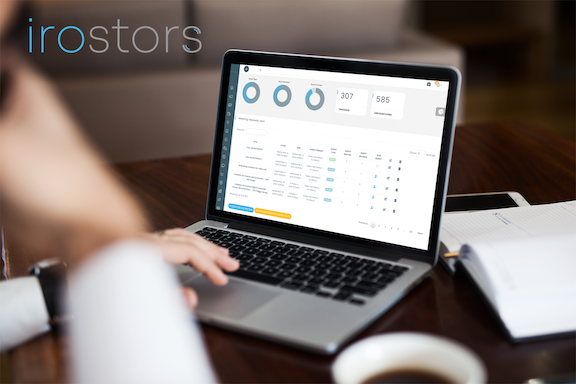What’s on the mind of the largest asset managers for 2H 2022?

As we start the second half of the year, Irostors is delighted to share a review of the largest asset managers’ mid-year outlooks. This article summarizes the consensus view and the macro risks they see over the next 12-18 months.
First, a few words on our methodology, we reviewed 26 of the largest asset managers in the world with AUM of at least USD 450bn for their mid-year outlook. Thus far, only 14 of them have published their view by mid-July. These reports generally present the asset manager’s economic outlook over the next 6 to 18 months, laying out their main expectations, rationale, and related risks. Many reports we reviewed provided their asset allocation views, but only a few (JPMAM, Capital Group) show explicit scenarios. Some asset managers (PIMCO, BlackRock, Wellington Management, Capital Group) also presented their longer-term views along with their introduction and reassessment of their main investment themes in the coming years.
One of our key findings is that the outlook for the near term is mainly cautious, and the burning question is whether there will be a recession in the near term. The answer is essentially “No”. Of the 14 reports we reviewed, 12 do not expect a recession in 2022 while only Aegon and State Street Global Advisors are more bearish. However, most asset managers anticipate a mild recession happening in 2023, with strong concerns about the likelihood of central bank policy error in an attempt to tame inflation. Most asset managers (JPMAM, Invesco, Allianz GI, Amundi, Nuveen, Wellington Management, Franklin Templeton, SSGA) expect inflation to peak during 2H 2022, while Federated Hermes and T. Rowe Price are more cautious. The former expects inflation to stay close to its peak for the year. The latter is uncertain about the timing of the inflation peak. Instead, T. Rowe Price is worried about the impact of high inflation on growth. Universally, all the managers expect the Fed to stay on the path of aggressive hikes to control inflation. Allianz GI even expects the Fed’s hawkishness to surprise the market in the near term. Another consensus among the reports is that the market expectations for corporate earnings growth are too high and are due for a correction. Lastly, the lack of optimism about the war in Ukraine is widespread, and all the managers expect it to drag on.
Regarding the risk factors that could tilt the consensus view to the downside, we found that a sustained surge in global inflation is of great concern. Any potential escalation in geopolitical tensions is also closely monitored. In addition to focusing on Ukraine (e.g., Russia directly attacking a NATO member), asset managers also assess the potential contagion of social unrest across developing countries. As mentioned above, policy mistakes by central banks are another key concern as over-tightening will lead to recession sooner. More fundamentally, monetary policy is ill-equipped to fight cost-pushed inflation by design. Regarding China, a renewed zero-covid policy and/or internal macro weaknesses will lead to a slower than expected re-opening, amplifying inflation pressure to the rest of the world and dragging growth globally. Finally, a few managers (JPMAM, Federated Hermes) highlighted the US mid-term elections as a risk; a victory driven by radical Republicans will add more uncertainties for the second half of Biden’s term.
Naturally, if the risks above subside, the views are tilted to the upside. However, as we have noted, an easing of the war in Ukraine and a reversal in central banks’ policy are both remote scenarios. At the same time, the re-opening of China very much depends on internal and external political considerations. More likely factors for a brighter outlook include a faster than expected de-bottlenecking of the supply chains or a better than anticipated resilience in consumer spending thanks to pandemic savings. A combination of both could relieve inflation pressures and maintain growth.
Going beyond the 6-18 months horizon, some asset managers also provided their views on key themes in the long run. On a macro level, markets will be more volatile as the global economy goes through a regime change, with inflation becoming a critical variable. Central banks will struggle to balance inflation and growth. BlackRock details the 3 key trends that will fuel changes in inflation: production constraints (that some associate with de-globalization), the level of leverage in the global economy, and the politicization of central banks’ actions. In terms of investment themes, PIMCO selected 3 fundamental economic changes to drive its stock picks: green, digital, and social transformation. Allianz GI places its bets on “impactful innovation” stocks, which include AI, cybersecurity, and climate mitigation/adaptation.
Last but not least, on asset allocation, roughly 2/3 of the managers favor bonds over equity in the short-term, albeit marginally, with yield levels having priced in the rate hike expectations. In contrast, equities may have another correction when earning expectations are lowered. Invesco stands out by having a slight equity overweight over fixed income as it sees the cycle maturing to lead to wider credit spreads. However, their equity pick is cautious and biased towards quality and large US corporates. This bias is also reflected in other asset managers’ selection in equity. The style preference is Value, Quality/Defensive, and Dividend, while energy, materials, and staples are the recurrent sector picks. Growth stocks have fallen out of favor except for disruptive industries like cloud computing, AI, cybersecurity, or climate change.
We hope you enjoyed this article and that our findings this helpful in fueling your conversations with prospective investors. You can reach out to many of the analysts and portfolio managers of the asset managers referenced in this article through Irostors. If you are interested, feel free to get in touch with us.
Follow us on Linkedin
Companies mentioned
JP Morgan Asset Management
Capital Group
PIMCO
BlackRock
Wellington Management
Aegon
State Street Global Advisors
Invesco
Allianz GI
Amundi
Nuveen
Franklin Templeton
Federated Hermes
T. Rowe Price
Sectors mentioned
Energy
Materials
Staples
Information Technology

